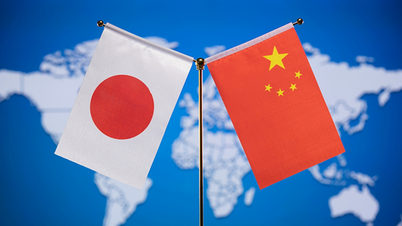Experts warn ultra-processed foods are a serious public health threat, with evidence showing they reduce diet quality and increase the risk of many diseases.
Scientists , including Brazilian professor Carlos Monteiro, who coined the term with colleagues about 15 years ago, argued on November 18 that ultra-processed foods (UPF) are increasingly popular worldwide and are linked to a decline in diet quality as well as a range of diseases, from obesity to cancer.
.jpg)
UPF is a food or beverage that is produced using industrial processing techniques, additives, and ingredients, and most contain very little whole food. Examples include carbonated soft drinks or instant noodles.
Although the term UPF has become widely used in recent years, some scientists and the food industry argue that it is too simplistic, and the debate has become increasingly politicized .
The authors acknowledge the criticisms of the Lancet series, saying more evidence is needed, particularly on why and how UPF causes health problems, and on the nutritional differences between products within the same UPF group. But they say the signal is strong enough for countries to act.
In a systematic review of 104 long-term studies conducted for this series, 92 studies reported higher risks of one or more chronic diseases associated with the UPF dietary pattern, and significant associations with 12 health conditions including type 2 diabetes, obesity, and depression.
Most of these studies were designed only to prove association, not direct cause, which the authors acknowledge. But they argue that the situation needs to be addressed while more data is collected, not least because UPF consumption is increasing worldwide as part of the diet, exceeding 50% in countries like the US.
Three papers in the series, funded by the Bloomberg Foundation, also outline ways to address the problem, such as incorporating UPF into national policies on foods high in fat, sugar, or salt. But they warn that the UPF industry is the biggest barrier to solving the problem.
The International Food and Beverage Alliance (IFBA), an organization representing major multinational food and beverage companies, said its members also want to improve global health outcomes through diet quality, and food companies should be part of the policy-making process.
"The policy and advocacy recommendations of this series go far beyond the existing evidence," argued IFBA secretary general Rocco Renaldi, adding that it risks reducing the availability of affordable, maintainable options globally.
Source: https://congluan.vn/chuyen-gia-canh-bao-thuc-pham-sieu-che-bien-gay-nguy-hiem-cho-suc-khoe-toan-cau-10318344.html






![[Photo] The Standing Committee of the Organizing Subcommittee serving the 14th National Party Congress meets on information and propaganda work for the Congress.](https://vphoto.vietnam.vn/thumb/1200x675/vietnam/resource/IMAGE/2025/11/19/1763531906775_tieu-ban-phuc-vu-dh-19-11-9302-614-jpg.webp)


























![[Photo] Prime Minister Pham Minh Chinh and his wife meet the Vietnamese community in Algeria](https://vphoto.vietnam.vn/thumb/1200x675/vietnam/resource/IMAGE/2025/11/19/1763510299099_1763510015166-jpg.webp)















































































Comment (0)